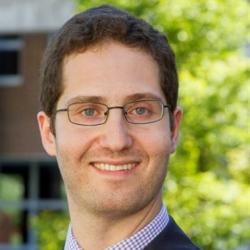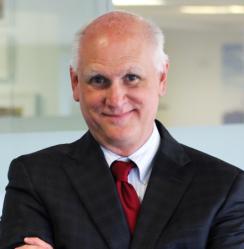

2:30 pm EDT - 3:45 pm EDT
Past Event
2:30 pm - 3:45 pm EDT
1775 Massachusetts Avenue N.W.
Washington, DC
20036
The North Atlantic Treaty Organization (NATO) was founded in 1949 to defend against a possible Soviet attack and included 16 North American and European member states when the USSR collapsed in 1991. Between 1999 and 2020, the organization admitted 14 additional members from Central and Eastern Europe that sought military security and political stability after the end of the Cold War. In the wake of Russia’s full-scale invasion of Ukraine in February 2022, Finland joined the alliance in April 2023. Sweden’s application is pending ratification by Turkey and Hungary, and NATO members are debating Ukraine’s possible accession. To this day, there are intense academic and policy debates about the security, political, and societal consequences of expansion.
In their new book, “Evaluating NATO Enlargement: From Cold War Victory to the Russia-Ukraine War,” co-editors James Goldgeier and Joshua R. Itzkowitz Shifrinson map out the organization’s enlargement process to lay the groundwork for a comprehensive analysis and evaluation of NATO expansion. The chapter authors assess a wide range of issues, including: NATO’s influence on U.S. foreign policy and on democracy and security in Central and Eastern Europe; members’ collective and individual relations with China and Russia; and NATO’s development as a political and military institution.
Ahead of NATO’s upcoming summit in Vilnius, Lithuania, Brookings convened a panel discussion on June 15 with the book’s co-editors and two chapter authors to analyze the merits and downsides of NATO enlargement and compare paths chosen and not chosen, giving special consideration to Russia’s war against Ukraine. Peter Baker of The New York Times moderated the conversation.
Viewers submitted questions by emailing [email protected] or via Twitter @BrookingsFP using #NATOEnlargement.
Guests at Brookings are required to attest to their state of health before attending an event in person. Visitors may not enter the building if they are feeling ill for any reason, have any symptoms commonly associated with COVID-19, or have tested positive for COVID-19 at any time in the preceding 14 days.
Panelist



George Ingram, Anthony F. Pipa
July 10, 2025

Landry Signé
July 8, 2025

Ling Chen, Ryan Hass, Jennifer Kavanagh, Michael E. O’Hanlon, Bruce Jones, Mireya Solís, Thomas Wright
July 2, 2025